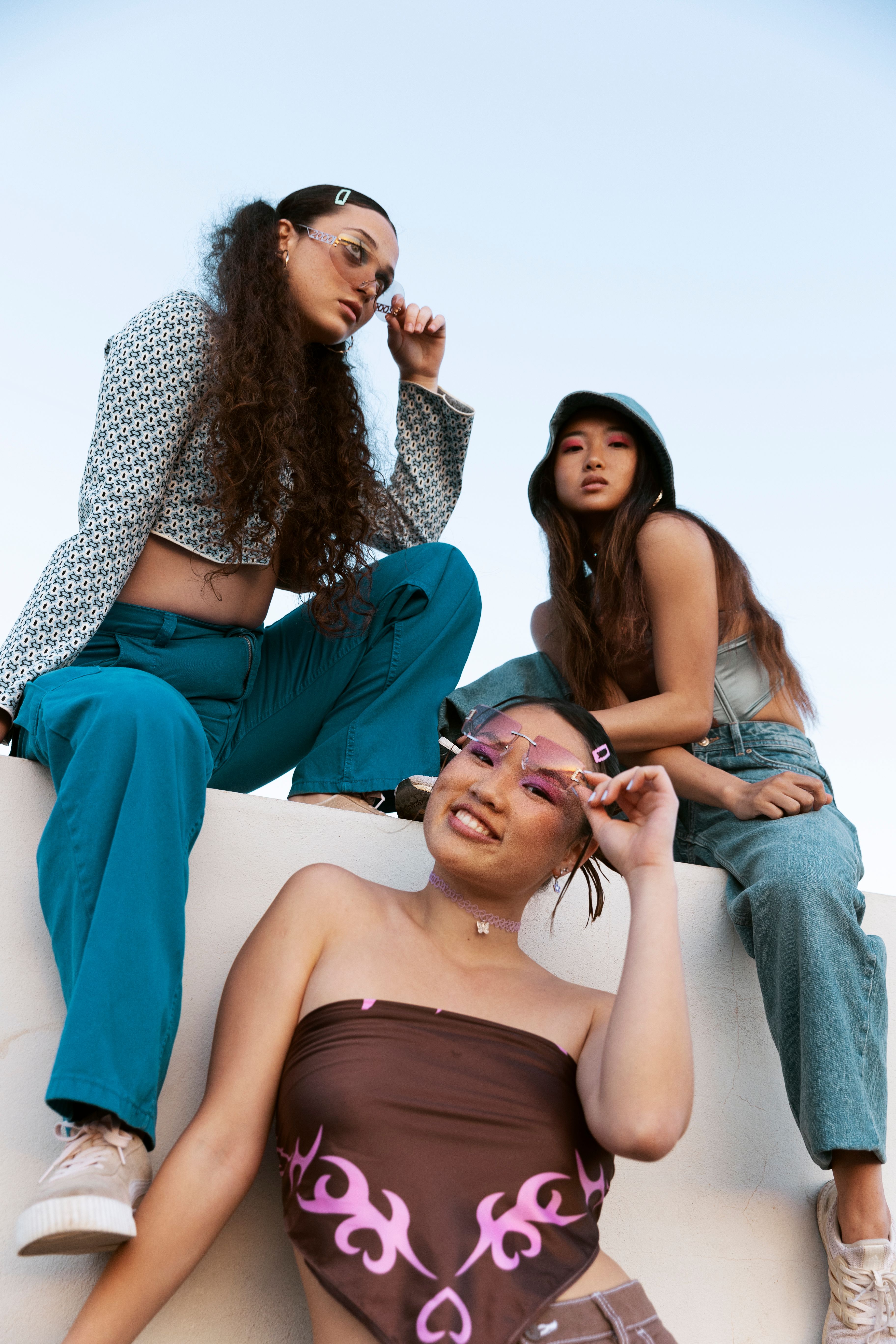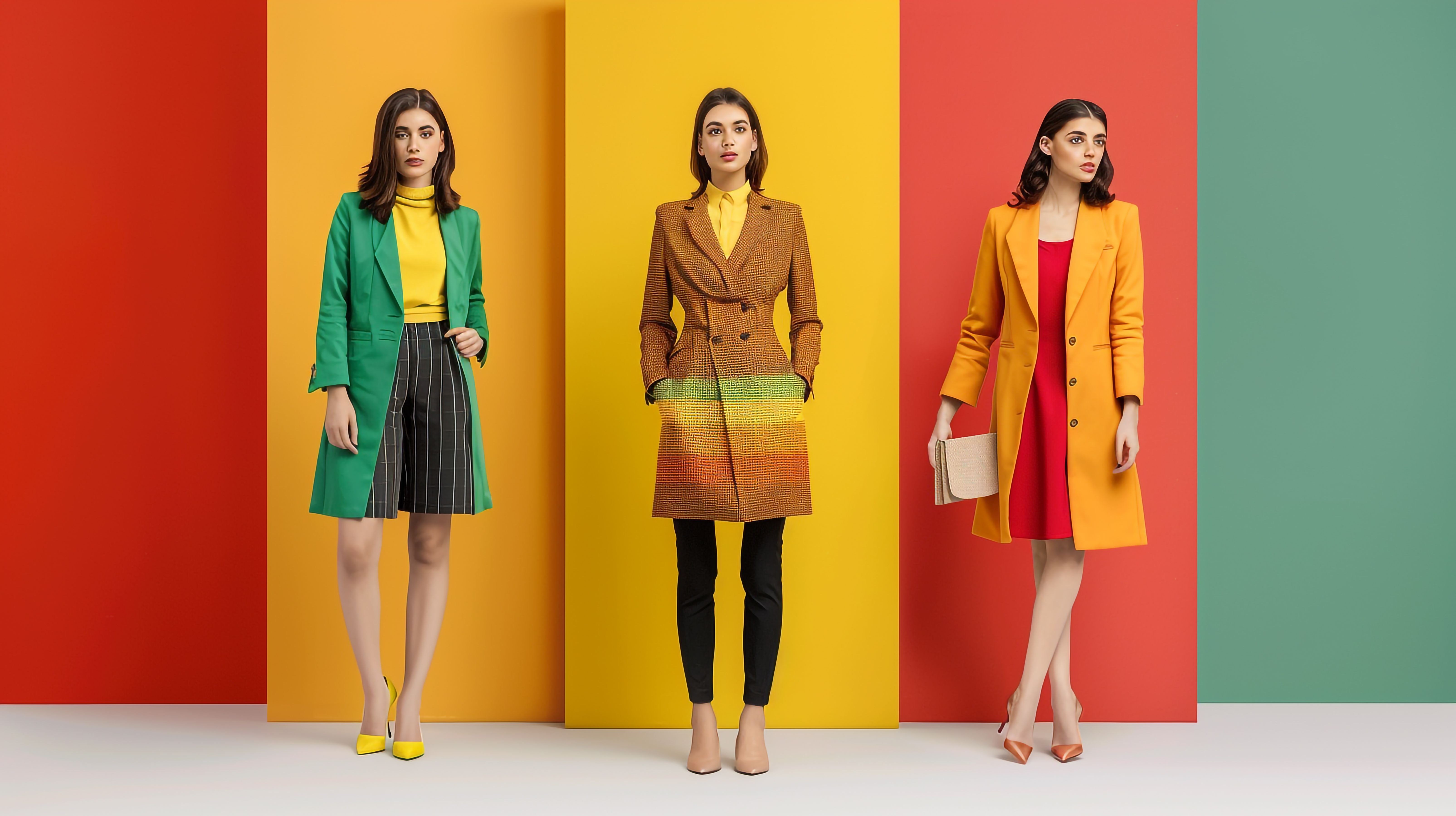How Fashion Inspiration Evolves Through Social Media
Sustainable Fashion AI: Everyday Eco-Friendly Outfits for 2025
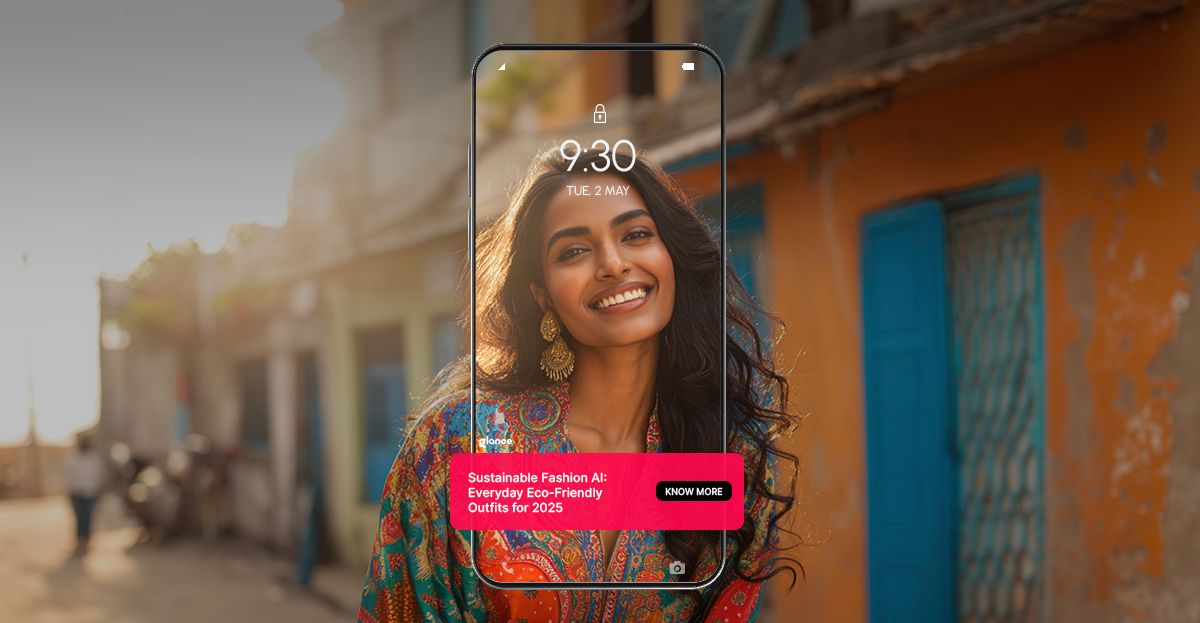

TL;DR
Sustainable fashion is moving from niche to normal. Eco-friendly outfits and AI-driven wardrobe tools are changing how we dress. The global sustainable fashion market is expanding fast, as more people choose ethical shopping apps, capsule wardrobes, and green fabrics. With sustainable fashion AI, brands can now predict trends, cut waste, and design better. And with Glance AI, building a chic, sustainable wardrobe is effortless, personal, and kind to the planet.
Introduction
Fashion reflects who we are — it’s expressive, creative, and deeply personal. But behind the glamour lies a harsh truth: fashion is one of the most polluting industries, generating nearly 10% of global carbon emissions and using thousands of liters of water for a single cotton shirt.
Now, this story is changing. Sustainable fashion AI is making clothing smarter, greener, and more accessible. Platforms like Glance AI help people build stylish, eco-friendly outfits with ease — no compromise on style or sustainability.
This blog explores how AI-powered sustainable fashion is transforming wardrobes, the top sustainable fashion trends, and simple ways to make your daily style eco-conscious.
Why Sustainable Fashion Matters in 2025
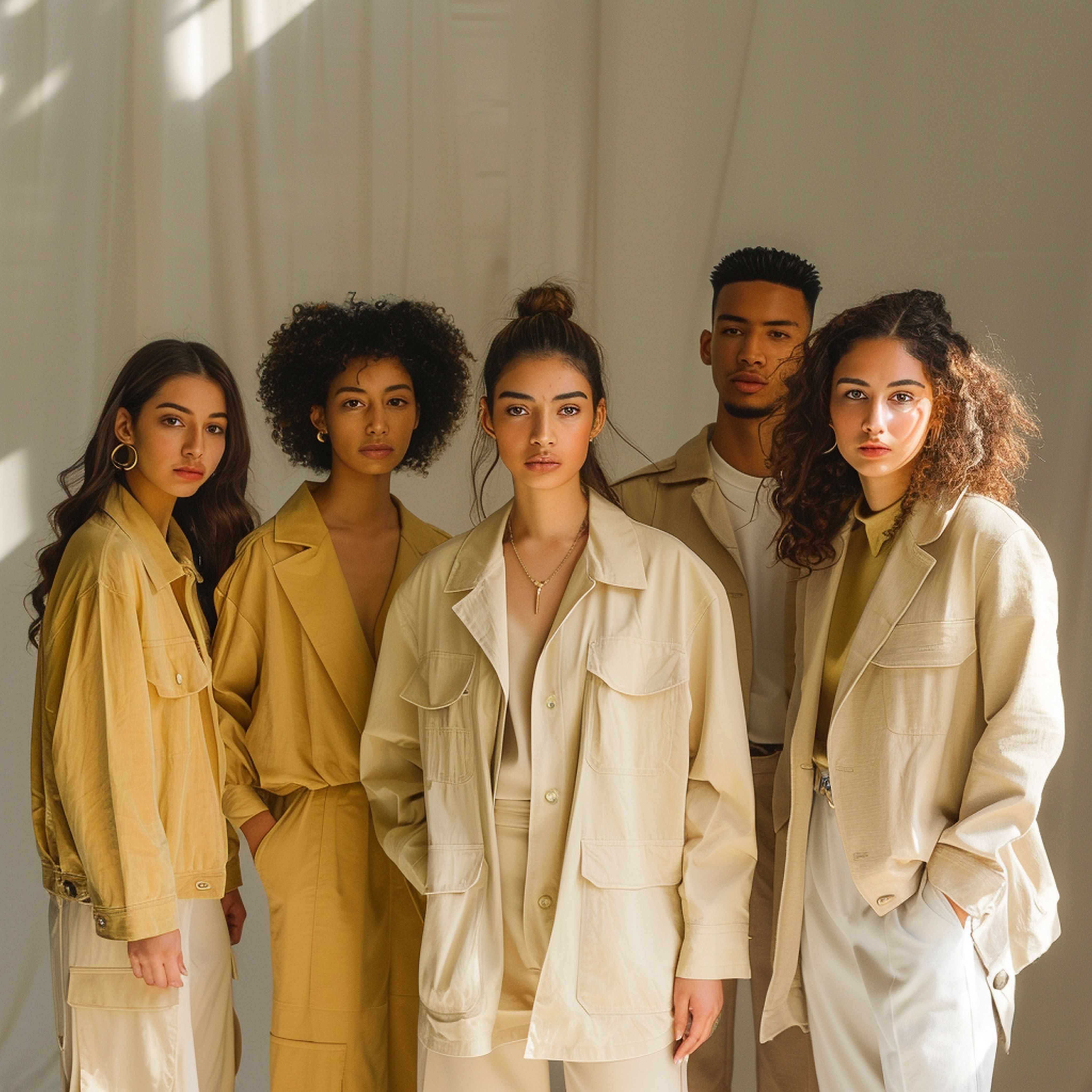
The fashion industry is massive—and so is its environmental impact. But change is here.
- The sustainable fashion market was valued at $9.2 billion in 2025 and is projected to nearly double to $17.8 billion by 2032, growing at a CAGR of 9.9%.
- India, one of the world’s textile hubs, is projected to generate 7.7 million tons of textile waste in 2025, highlighting the urgency of eco-conscious solutions.
Consumers are increasingly asking: How can my everyday wardrobe be both stylish and sustainable?
That’s where AI steps in. By combining predictive algorithms, smart shopping assistants, and personalization tools, AI bridges the gap between fashion and responsibility.
The Role of AI in Sustainable Fashion

AI isn’t just changing technology — it’s redefining fashion. Here’s how sustainable fashion AI is making eco-friendly outfits part of everyday life.
1. Zero-Waste Design
Overproduction creates millions of tons of textile waste each year. AI helps brands predict demand accurately so they produce only what customers want. This reduces unsold stock and minimizes waste.
For instance, Glance AI analyzes real-time shopping data to recommend trends — like pastel-toned co-ord sets or relaxed denim — helping brands and consumers stay stylish and sustainable.
2. Smarter Fabrics and Recycling
AI drives innovation in fabric technology. From biodegradable materials to advanced recycling systems, AI helps develop new ways to reuse textiles.
Imagine turning an old polyester T-shirt into a chic, eco-friendly jacket. That’s where sustainable fashion 2025 is headed — toward a true circular economy powered by intelligent recycling.
3. Supply Chain Transparency
AI and blockchain now track garments from fiber to finish. This ensures fair wages, ethical sourcing, and reduced carbon emissions.
Ethical shopping apps use this technology to let shoppers scan brands and instantly see their sustainability ratings — helping people make informed, responsible choices.
4. Personalized Styling for Consumers
Glance AI doesn’t just empower brands — it empowers you. Through AI-driven recommendations, it curates eco-friendly outfits based on your preferences, lifestyle, and even local weather.
Instead of endless scrolling, Glance AI builds a capsule wardrobe that’s versatile, timeless, and easy to mix and match — saving time, money, and the planet.
Everyday Ways to Wear Eco-Friendly Outfits

One of the biggest myths about sustainable fashion is that it’s boring, expensive, or difficult to style. The reality? With the right approach, eco-friendly outfits are some of the most versatile and stylish choices you can make.
Here are some practical outfit rotation ideas:
- Capsule Wardrobe Staples for Women
- Organic cotton shirts in pastel tones
- Linen trousers for breathable comfort
- Recycled polyester jackets in muted neutrals
- Flowy skirts that pair easily with tees or button-ups
- Capsule Wardrobe Staples for Men
- Hemp-based T-shirts for durability
- Relaxed-fit trousers made from recycled blends
- Lightweight unstructured blazers in earthy neutrals
- Sustainable sneakers or loafers crafted from recycled rubber
With just 10–12 pieces, you can create dozens of combinations. For example:
- A linen shirt + organic cotton trousers = work-friendly casual.
- A hemp tee + recycled denim = everyday relaxed look.
- A blazer + skirt or trousers = smart casual for evening outings.
Outfit rotation ideas like these cut down on excessive buying while refreshing your wardrobe with timeless pieces.
Ethical Shopping Apps Changing Consumer Behavior
Shopping sustainably is now easier than ever. No more hours of research — just open an ethical shopping app.
About 66% of global consumers say they’re willing to pay more for sustainable products. These apps simplify conscious shopping by verifying brand ethics, tracking carbon footprints, and even recommending resale or upcycled fashion.
With Glance AI, users get instant outfit ideas, eco-friendly swaps for fast fashion, and insights into how many new combinations they can create with their existing clothes. Sustainability becomes seamless, fun, and rewarding.
The Future of Sustainable Fashion 2025 & Beyond
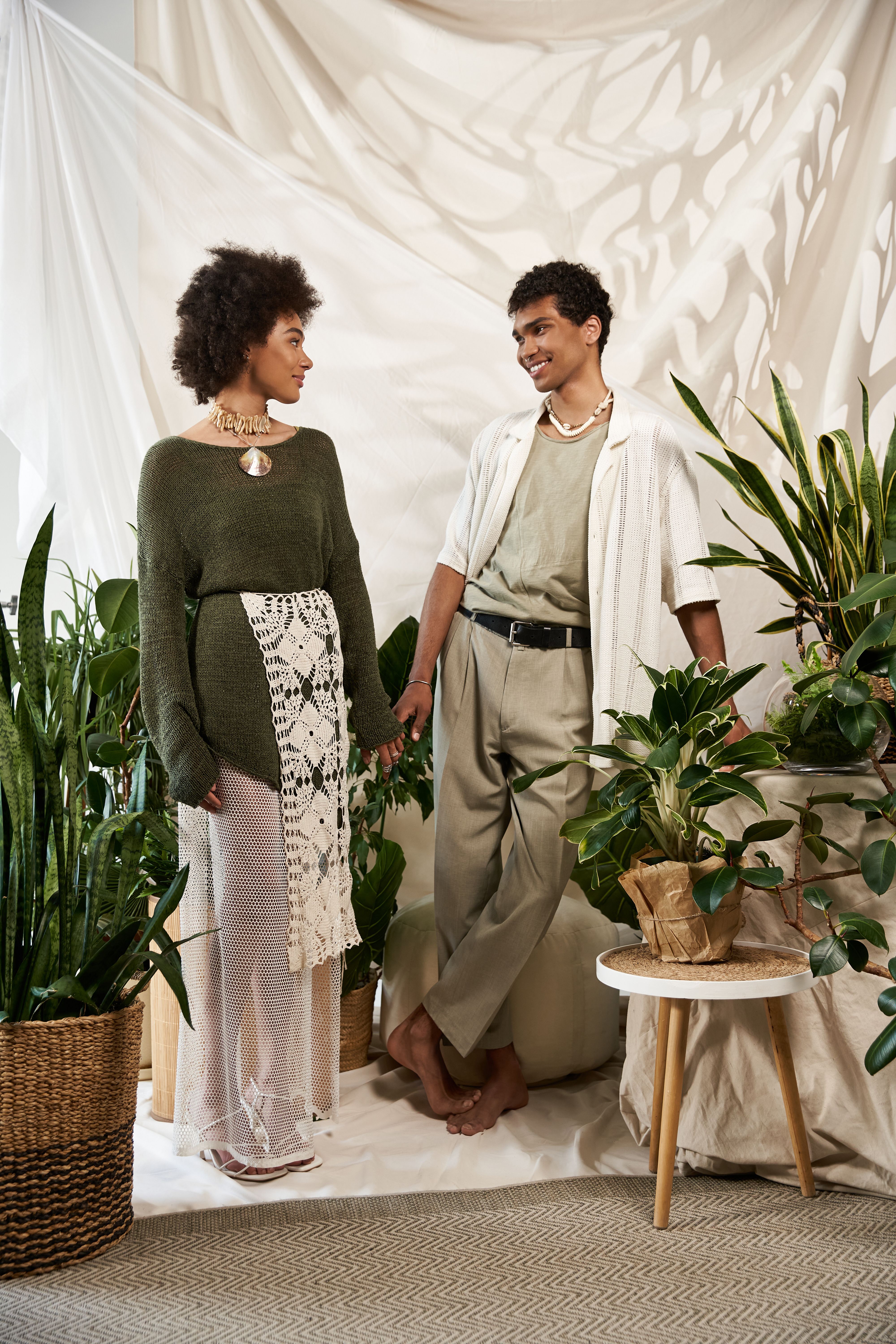
The future of fashion is looking bright — and green.
The eco-friendly clothing market is projected to reach $14.52 billion by 2033, showing strong global demand for conscious fashion. Expect to see more AI-powered assistants like Glance AI helping people build wardrobes that are both stylish and sustainable.
Key sustainable fashion 2025 trends include:
- Earthy neutrals and muted pastels
- Oversized silhouettes
- Modular, long-lasting pieces
- Smarter recycling systems and traceable supply chains
As AI and circular fashion merge, the industry is evolving into one that values responsibility as much as style.
Conclusion
Every fashion choice has an impact. With sustainable fashion AI, your wardrobe can now reflect your values — effortlessly.
By embracing eco-friendly outfits, building capsule wardrobes, and using ethical shopping apps, you’re taking real steps toward a greener future.
Fashion’s next chapter is smarter, simpler, and more sustainable — and with Glance AI, it’s easier than ever to dress responsibly without losing your edge.
Download the Glance AI app today and start curating your eco-chic wardrobe.
FAQs
Q1: What is sustainable fashion AI?
A: It’s the use of AI in design, production, and shopping to reduce waste, improve fabric innovation, and guide eco-friendly purchases.
Q2: How can I build eco-friendly outfits for everyday wear?
A: Start with a capsule wardrobe of versatile pieces in organic cotton, hemp, or recycled fabrics. Apps like Glance AI can help you style them.
Q3: Are sustainable fashion 2025 trends affordable?
A: Yes. As demand grows, brands are offering budget-friendly eco-friendly outfits, and ethical shopping apps help you find deals.
Q4: What role do ethical shopping apps play?
A: They verify sustainable brands, track impact, and recommend eco-friendly alternatives to fast fashion items.
Q5: Can AI really reduce fashion waste?
A: Absolutely. AI predicts demand, reduces overproduction, and powers textile recycling technologies for a circular fashion future.


